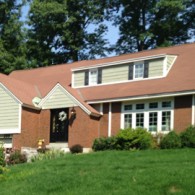What is PMI?
Many New Hampshire home buyers make down payments of less than 20 percent and have to pay private mortgage insurance (PMI). PMI is a type of insurance policy that reimburses your lender if you default on your mortgage.
Private mortgage insurance charges vary depending on the size of the down payment and the type of loan. Example: A borrower buying a house with no down payment will pay a higher PMI than a borrower putting down 10%. PMI adds thousands of dollars to the cost of your home over time.
PMI isn’t necessarily a bad thing because it enables home buyers with less than a 20% down payment to get an interest rate that is just as low as if they did have the 20% down.
How to get rid of PMI
With current laws, both consumers and lenders share responsibility to how long PMI coverage is required. If you have private mortgage insurance on your existing mortgage and you now have 20% equity (the difference between the loan amount and what the market value of your home), you can get rid of PMI in two different ways:
- Contact the PMI department at the toll free number shown on your mortgage statement. Tell them you have 20% equity and want to drop the PMI. They will explain the requirements of doing so, including instructions on how to secure an updated appraisal.
- Refinance to a new mortgage program that won’t require PMI.
If you’re considering a new mortgage, you also have options:
- Put 20% down. If you don’t have 20% to put down, you can avoid PMI by getting a piggyback loan — a second mortgage that allows you to make the equivalent of a 20 percent down payment by borrowing part of the down payment in the form of a 2nd mortgage. (For example, you might want to put 10 percent down on your new home. To finance the rest, you obtain a first mortgage of 80 percent, and a second mortgage of the remaining 10 percent.) What’s more, a piggyback loan has an income tax advantage: You can deduct the interest from your taxable income, whereas the cost of PMI isn’t deductible.
- If you accept a higher interest rate on your mortgage loan, you could avoid PMI. (The rate increases generally range from 1/2 percent to 1 percent, depending on your down payment.) Because non-conforming or sub-prime loans do not conform to standard guidelines, they do not require PMI. And again, the mortgage interest is tax deductible.
- Consider a purchase Home Equity Line Of Credit (HELOC). A HELOC is like a cross between a conventional mortgage and a credit card. With a HELOC, you qualify for a line of credit based on the amount of equity in your home. For purchases, the lender “pretends” that you already own the house and gives you a line of credit for 100% of its value. You then use the money to actually purchase the property.
We are experts at how and when each of these programs works the best. Before making any decisions, we will show you a comparison of the different programs on paper so you can make your own decision as to which program is best for you.
Piggyback Mortgages in New Hampshire
Piggyback mortgages are used to avoid “Private Mortgage Insurance” (PMI) requirements. Normally when you put less than 20% down, the lender will require you, the borrower, to pay PMI.
As a consumer, you don’t want to pay PMI. But you have to if you want a really good interest rate – unless, you piggyback.
Normally when you piggyback, you borrow 80% of the purchase price on a 1st mortgage and the rest of the money on a 2nd mortgage.
Example : 80/10/10 piggyback at $250,000 purchase price:
(80% 1st mortgage | 10% 2nd mortgage | 10% borrower’s own funds)
| PMI Loan | Piggyback | |
| 1st Mortgage amount | $225,000 @ $1349/mo | $200,000 @ $1199/mo |
| 2nd Mortgage amount | N/A | $25,000 @$150/mo |
| PMI | $97.50/ mo | N/A |
| Total payment | $1446.50/mo | $1349/mo |
As far as the 1st mortgage lender is concerned, you are putting 20% down (because you are only borrowing 80% from them). You may have borrowed part of the 20% down in the form of a 2nd mortgage, but you still don’t have to pay the PMI.
Interested in learning more about how PMI affects your new or existing mortgage? Call Charley Farley at (603) 471-9300 or e-mail.

